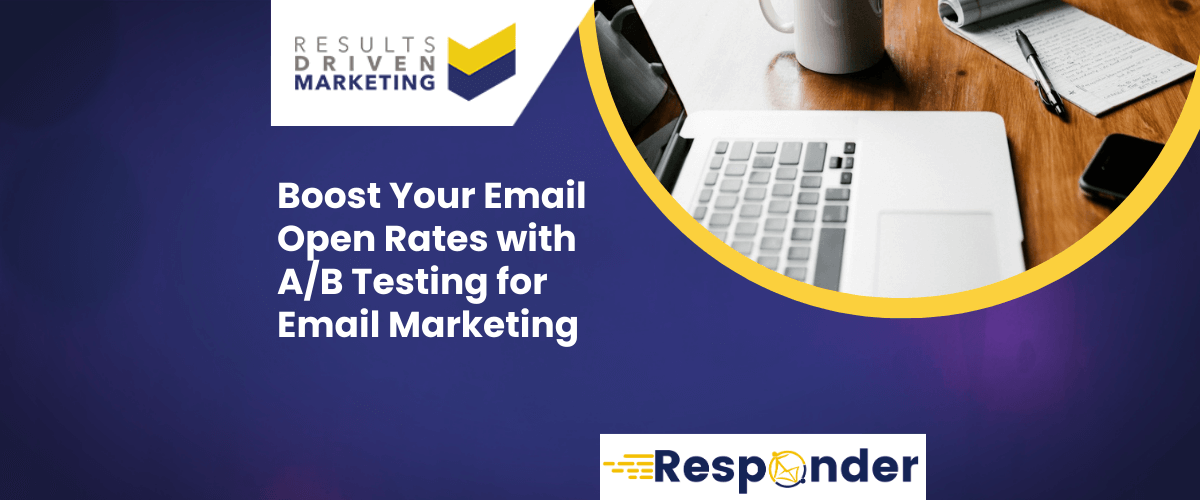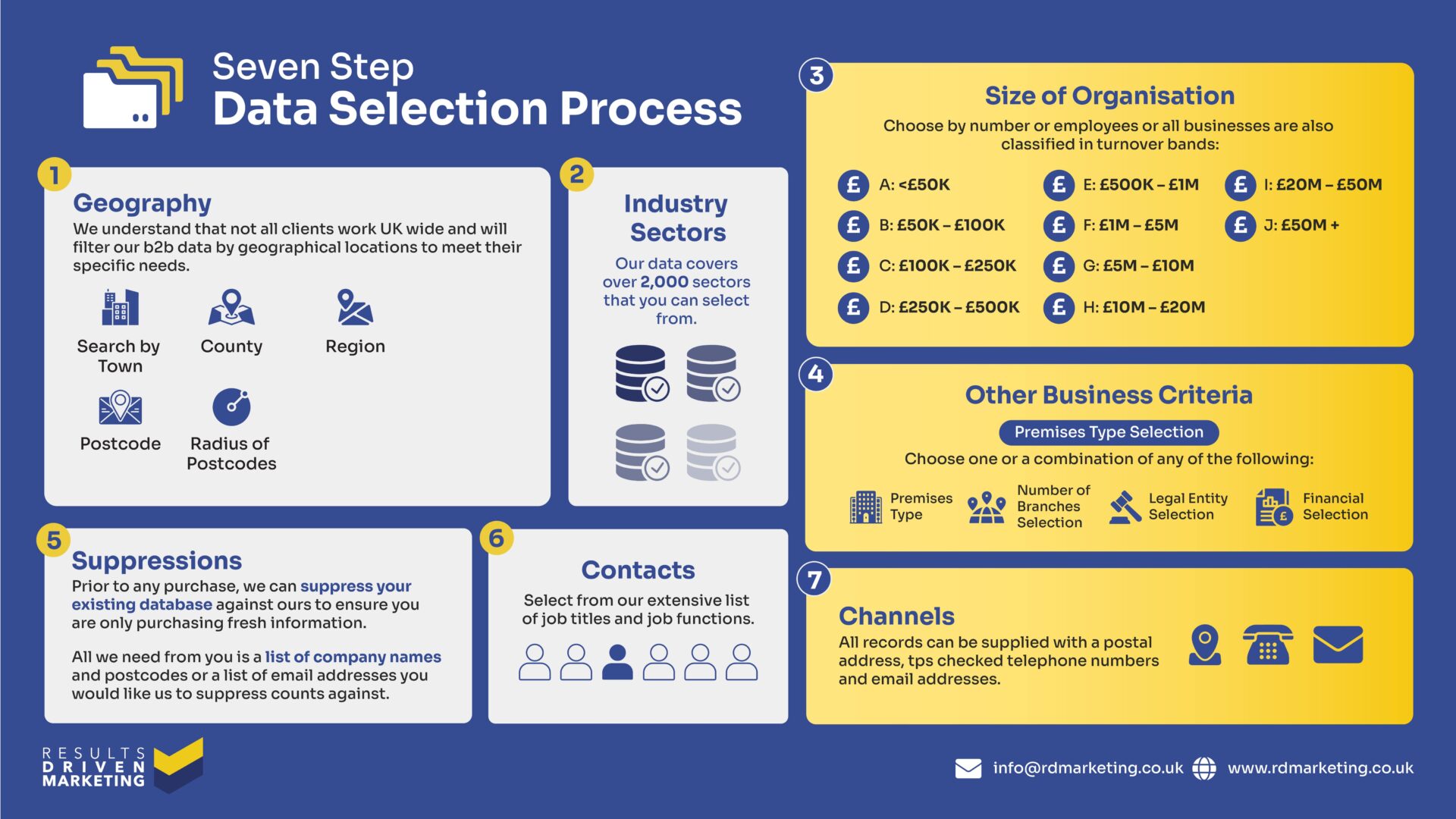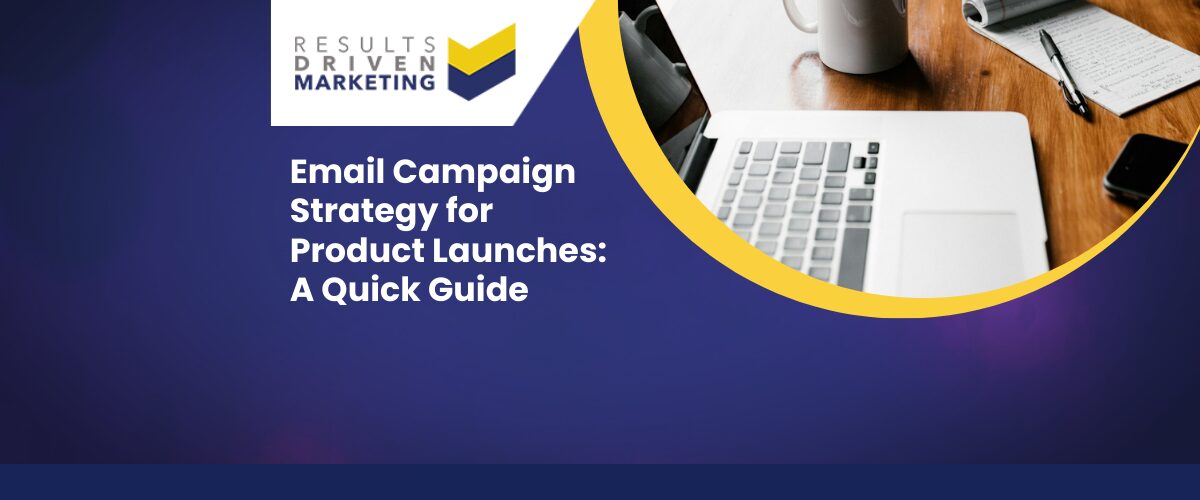
Boost Your Email Open Rates with A/B Testing for Email Marketing
A/B testing for email marketing is hands down one of the best ways to fine-tune your campaigns and get better results. It’s super simple yet incredibly effective—you try out different versions of your emails to see what really clicks with your audience.
Whether it’s testing subject lines, tweaking call-to-action buttons, or experimenting with the timing of your sends, A/B testing helps you uncover what works best. The payoff? Better engagement and noticeably higher open rates.
Here’s the thing: even small tweaks can make a world of difference. Sometimes, adding a touch of personalisation to your email address list data or trying out a different tone in your subject line can increase your open rates by double digits. The key is to approach your email campaigns with a mindset of continuous testing and learning.
At RD Marketing, we’re all about helping businesses make the most of their email campaigns. Whether you’re looking for B2B data to target decision-makers or need a CTPS checker to keep your campaigns compliant, we provide the tools and expertise to support your success.
For instance, our email marketing management services are designed to simplify and enhance your campaigns, making it easier than ever to test and optimise.
By the way, A/B testing doesn’t require a massive overhaul of your strategy. It’s about making small, incremental changes that add up to big improvements.
Curious about where to start? Think about testing the basics, like your subject lines, or use a high-quality direct mail data list to refine your audience targeting. These small adjustments can lead to massive gains in engagement over time.
Ready to take your email marketing to the next level? Stick with us as we dive into the details of how A/B testing for email marketing works and why it’s a must-have tool for every marketer.
Plus, if you need premium data enrichment services or a reliable international email list, we’ve got you covered! Visit RD Marketing to explore how we can help you create data-driven campaigns that deliver results.
Table of contents:
What is A/B Testing for Email Marketing?
A/B testing for email marketing is essentially a comparison test. It involves creating two (or more) versions of an email, where one element is slightly altered between the versions. The goal is to see which version performs better based on a specific metric—such as open rates, click-through rates, or conversions. This data-driven approach helps marketers make informed decisions rather than relying on guesswork.
Here’s how it works: Imagine you want to know whether adding emojis to your subject line grabs more attention. You create two emails, identical except for the subject line—one with emojis and one without. You send these versions to small, randomly selected segments of your email address list data, measure the results, and implement the winner for the rest of your audience. It’s that simple—and incredibly effective.
How Does A/B Testing Work in Email Marketing?
The magic of A/B testing lies in its flexibility. Here’s a breakdown of how it applies specifically to email campaigns:
- Subject Lines: Test whether personalisation (like using a recipient’s name) or urgency-focused phrases yield higher open rates.
- Sender Names: Does your audience prefer a friendly name or a formal company identity?
- Send Times: Experiment with sending emails at different times or days to identify the optimal schedule.
- Content Layouts: See if a clean, minimalist design outperforms one packed with visuals.
- Call-to-Action (CTA): Test different CTA placements, colors, or wordings to maximise clicks.
By running these tests, you’ll uncover invaluable insights about your audience. And if you’re using a highly targeted international email list, for instance, you can refine your campaigns to suit specific regions or demographics for even better results.
Tools for A/B Testing in Email Marketing
Several tools make A/B testing for email marketing straightforward, even for beginners. Platforms like Mailchimp, HubSpot, and Campaign Monitor allow you to set up tests with just a few clicks. They also provide analytics to help you measure the results. Advanced users might even leverage CRM integrations or external tools to manage complex campaigns effectively.
But it’s not just about the tools—it’s also about the data you start with. High-quality B2B data is the foundation of any successful campaign. At RD Marketing, we provide access to top-notch direct mail data and consumer data so you can target your ideal audience with precision. If your data needs a refresh, our data cleansing services can ensure you’re working with accurate and up-to-date information.
And let’s not forget compliance! If you’re testing campaigns in regions with strict regulations, our CTPS checker ensures you’re on the right side of the law while running your tests.
Why Choose A/B Testing?
By now, you’re probably thinking, “Do I really need to bother with this?” The answer is a resounding yes. Without A/B testing for email marketing, you’re essentially flying blind. Instead of making educated guesses about what your audience prefers, A/B testing gives you hard evidence of what works. And the best part? It’s an ongoing process, so you’re constantly improving and refining your email strategy.
If you’re ready to dive into A/B testing for email marketing, why not start with expert support? At RD Marketing, we offer everything from telemarketing data to data enrichment services to help you optimize your campaigns every step of the way.
Why A/B Testing Matters for Email Open Rates
In the fast-paced world of email marketing, standing out in a crowded inbox can feel like a constant uphill battle. That’s where A/B testing for email marketing comes in—it’s your secret weapon for ensuring your emails get noticed, opened, and acted upon. Let’s talk about why this approach is so impactful, and how it can solve some of the most common challenges marketers face.
Data-Backed Benefits of A/B Testing for Email Marketing
When you dive into the numbers, the advantages of A/B testing for email marketing become crystal clear:
- Higher Engagement: Emails that have undergone A/B testing tend to outperform those that haven’t. Testing elements like subject lines and send times can boost open rates by as much as 20–30%.
- Better ROI: By finding out what works best, you can allocate resources to winning strategies. For instance, testing your email address list data can reveal which audience segments are most responsive.
- Increased Audience Insights: With each test, you gain valuable insights into your recipients’ preferences. This knowledge is crucial for crafting future campaigns that resonate even more effectively.
With tools like our email marketing management services, setting up A/B tests is easier than ever. These services help you manage campaigns while making data-driven decisions that lead to stronger outcomes.
Challenges Without A/B Testing—And How It Solves Them
Without A/B testing for email marketing, you’re essentially guessing what your audience wants. Here’s a look at some common challenges and how A/B testing provides a solution:
- Low Open Rates:
Struggling with lackluster open rates? A/B testing can pinpoint the exact changes—like using more personalised subject lines or optimising send times—that can make all the difference. - Unclear Performance Metrics:
Without testing, it’s hard to determine what’s working and what’s not. With A/B testing, you can isolate variables and get a clear picture of which strategies yield the best results. - One-Size-Fits-All Content:
Sending the same email to everyone isn’t always effective. By testing variations tailored to different segments of your consumer data or international email list, you can create more personalised and impactful messaging. - Compliance Concerns:
Staying compliant with regulations like GDPR can be daunting. Testing your approach with tools like our CTPS checker ensures your campaigns remain lawful while maximising their effectiveness.
How A/B Testing Improves Open Rates—A Simple Example
Let’s say you’re running a campaign targeting businesses using a B2B data list. Your initial email has a subject line that feels too generic. Instead of overhauling the entire campaign, you A/B test a new version with more urgency or personalisation. After analysing the results, you find that the new subject line outperformed the original by 15%. Now, you’ve uncovered a winning formula to replicate in future campaigns.
If you’re serious about improving open rates, the key is starting with clean, actionable data. That’s why our data cleansing services and data enrichment services are designed to ensure your mailing lists are as accurate and effective as possible.
Elements to A/B Test in Your Email Campaigns
When it comes to A/B testing for email marketing, the possibilities are nearly endless. By focusing on key elements of your emails, you can uncover actionable insights that significantly improve your results. Let’s dive into the specific components you should test and how each can impact your campaigns.
Subject Lines
Your subject line is the first thing your audience sees, and it’s often the make-or-break factor for open rates. Testing different variations can reveal what catches your readers’ attention. Here’s what to experiment with:
- Tone: Friendly vs. professional.
- Length: Short and snappy or more descriptive.
- Personalisation: Adding the recipient’s name or details specific to their interests.
- Emojis: Do emojis enhance or detract from your brand’s image?
For example, if you’re sending an email to a highly targeted B2B data list, you might test a formal subject line against a more conversational one to see which resonates better with business professionals.
Send Times
Timing is everything, especially when it comes to A/B testing for email marketing. Experiment with:
- Day of the Week: Emails sent on Tuesdays might perform better than those sent on Fridays.
- Time of Day: Early morning, lunchtime, or late evening? Each audience has its own preferences.
Testing send times can be especially useful when working with global campaigns using an international email list. By analysing results, you can schedule emails to match local time zones and habits.
From Name
Does your audience respond better to an email from a brand name or a specific individual? Testing this small detail can yield surprising results:
- Brand Name: Works well for building brand recognition.
- Individual Name: Feels more personal and approachable.
For campaigns targeting consumer data, for instance, using a personal name can sometimes help establish trust and familiarity.
Preview Text
The preview text is the snippet of text that appears after the subject line in the inbox. It’s prime real estate that you can optimise by testing:
- Keywords: Highlight words that align with your audience’s interests.
- Urgency: Create a sense of FOMO (fear of missing out).
- Personalisation: Tailor it to your recipients, using insights from a clean, up-to-date email address list data.
If you need help refining your lists to make personalisation easier, our data cleansing services ensure your data is accurate and ready for impactful campaigns.
Email Layout and Design
Visual appeal plays a big role in engagement. Test variations like:
- Text-Heavy vs. Image-Heavy: Does your audience prefer informative emails or visually engaging ones?
- CTA Placement: Above the fold vs. at the bottom.
- Color Schemes: Try bold, vibrant colors versus subtle tones.
For instance, if you’re working with a direct mail data campaign, testing email design can help align your messaging with offline efforts for a seamless experience.
Why These Elements Matter
By testing these elements, you can optimise every aspect of your emails for better results. Whether it’s tweaking the tone of your subject lines or perfecting the timing of your sends, A/B testing for email marketing gives you the insights you need to engage your audience effectively.
Need help setting up these tests? RD Marketing offers a range of services, including telemarketing data, email marketing management services, and data enrichment services to make your campaigns smarter, sharper, and more successful.
How to Run an Effective A/B Test
Running an A/B test for email marketing might seem complicated at first, but it’s actually a straightforward process. By following a systematic approach, you can optimise your campaigns and uncover the strategies that truly work. Here’s a step-by-step guide to ensure your A/B tests are both effective and insightful.
Step 1: Define Your Objective
Before diving into the details, ask yourself: what do I want to achieve? Having a clear goal helps you focus your test and measure the right metrics.
- Common Objectives:
- Increase open rates.
- Boost click-through rates.
- Improve conversion rates.
For instance, if your goal is to improve open rates, focus on elements like subject lines or send times. Need data to target the right audience? Start with a high-quality email address list data from RD Marketing.
Step 2: Choose One Variable to Test
The key to effective A/B testing for email marketing is to isolate one variable at a time. This ensures you can pinpoint exactly what’s driving the results.
- Examples of Variables:
- Subject lines (e.g., personalised vs. generic).
- Send times (morning vs. afternoon).
- Layouts (text-heavy vs. image-heavy).
Testing multiple variables at once might seem tempting, but it complicates the analysis. Start simple, especially when working with a specific B2B data or consumer data list.
Step 3: Segment Your Audience Into Test Groups
Divide your audience into smaller groups to compare the performance of your email versions. For reliable results:
- Ensure the groups are randomly selected but equally representative.
- Use an adequate sample size for statistical significance.
If you’re targeting a diverse audience using an international email list, consider segmenting based on regions or demographics to gather more nuanced insights.
Step 4: Design the Test Emails and Run the Test
Now it’s time to create the email variations and set the test live. Keep these tips in mind:
- Use consistent content except for the one variable you’re testing.
- Set up your test within an email marketing management service like the ones offered at RD Marketing.
- Send the emails to your test groups at the same time to avoid time-related discrepancies.
For example, if you’re running a campaign targeting professionals using direct mail data, you might test whether a formal subject line or a conversational tone performs better.
Step 5: Analyse the Results and Implement Learnings
Once the test concludes, analyse the data to determine which version performed better. Look at metrics aligned with your goal, such as:
- Open rates for subject line tests.
- Click-through rates for CTA placement tests.
- Conversion rates for layout or design experiments.
Don’t stop there! Use your findings to optimise future campaigns. Regular testing ensures your strategy evolves with your audience’s preferences. If your data needs updating for better segmentation, consider using our data cleansing services or data enrichment services at RD Marketing.
Why Follow This Process?
By sticking to a structured approach, you eliminate guesswork and make data-backed decisions. Whether you’re refining emails for a telemarketing data audience or exploring trends with consumer data, A/B testing empowers you to fine-tune your campaigns for maximum impact.
For additional support, explore our range of services at RD Marketing, including CTPS checkers and tools for managing every aspect of your email campaigns.
Best Practices for A/B Testing in Email Marketing
To get the most out of A/B testing for email marketing, it’s essential to approach your tests with a clear strategy. While the concept is straightforward, following these best practices ensures your tests are accurate, insightful, and actionable.
Test One Variable at a Time for Clarity
When conducting A/B testing for email marketing, focus on a single variable. Testing multiple elements at once—like subject lines, CTAs, and email layouts—might seem efficient, but it can muddle the results.
For example:
- If you’re testing subject lines, keep everything else in the email identical.
- If you’re experimenting with send times, use the same email content.
This focused approach ensures you can pinpoint exactly what influenced the results. If you’re targeting a specific segment, like those on a B2B data list, this clarity can be invaluable for tailoring future campaigns.
Ensure Statistically Significant Sample Sizes
Small sample sizes can lead to unreliable results. To confidently identify a winner, make sure your test audience is large enough to provide statistically significant data.
Tips for Setting Up Your Audience:
- Use a minimum of 1,000 recipients per version, if possible.
- For smaller kinds of an email list, consider testing only high-impact elements, like subject lines or CTAs.
Working with a clean and updated email address list data is crucial here. If your list isn’t accurate, the results of your tests might not reflect the preferences of your true audience. Our data cleansing services can help ensure your lists are reliable.
Repeat Tests to Confirm Results
Even if one version outperforms another in your first test, that doesn’t mean it will always be the best choice. Repeating tests with new audiences or under different conditions can validate your findings and provide more robust insights.
For instance:
- If a certain subject line works well for your consumer data segment, test it again on an international email list to confirm it resonates globally.
- Revisit tests periodically to adapt to changes in audience behavior or market trends.
Leverage A/B Testing Tools for Accuracy and Ease
Manually managing A/B testing for email marketing can be time-consuming and prone to error. Use dedicated tools and platforms to streamline the process and ensure accurate data collection. Popular email marketing tools often include built-in A/B testing features, but if you need extra guidance, consider our email marketing management services.
Benefits of Using Tools:
- Automated segmentation and email distribution.
- Real-time analytics to track performance.
- Visual dashboards for easy comparison of results.
For campaigns targeting niche markets, like those based on direct mail data or telemarketing data, tools can help refine your tests for even better results.
Why These Best Practices Matter
Following these best practices ensures your A/B testing for email marketing is as effective as possible. Whether you’re experimenting with a CTPS checker for compliance or testing layouts for a global international email list, a structured approach leads to actionable insights.
At RD Marketing, we provide the data and tools you need to make every test count. From high-quality B2B data to advanced data enrichment services, we’re here to help you craft smarter, more effective email campaigns.
Common Mistakes to Avoid in A/B Testing
While A/B testing for email marketing is a powerful tool, even small missteps can lead to misleading results or wasted effort. Avoiding common mistakes ensures you get the most accurate and actionable insights from your tests. Let’s take a closer look at what not to do.
Testing Too Many Variables at Once
One of the biggest mistakes marketers make is trying to test too many variables in a single experiment. When multiple elements are changed—like subject lines, CTAs, and layouts—it becomes nearly impossible to determine which change caused the outcome.
Why This Is a Problem:
- Results are ambiguous, making it hard to implement learnings.
- You lose valuable time and resources without gaining clear insights.
How to Avoid It:
- Stick to testing one variable at a time.
- For example, if you’re targeting a niche audience with telemarketing data, test whether personalized subject lines outperform generic ones before moving on to other elements like email design or CTA placement.
Drawing Conclusions Too Early
Another common pitfall is ending the test too soon. While it’s tempting to declare a winner after seeing early results, doing so can lead to inaccurate conclusions.
Why This Happens:
- Impatience to roll out changes to the full audience.
- Misunderstanding of statistical significance.
How to Avoid It:
- Let the test run long enough to gather enough data for reliable results.
- Use A/B testing tools available in email marketing management services to calculate statistical significance automatically.
For instance, if you’re working with a broad international email list, ensure the test runs across multiple time zones and days to account for audience behavior variations.
Ignoring Post-Open Metrics
Many marketers focus solely on open rates during A/B testing for email marketing, neglecting other important metrics like click-through rates and conversions. While open rates are crucial, they’re only part of the story.
Why This Is a Problem:
- A high open rate doesn’t guarantee success if recipients don’t engage further.
- Overlooking post-open metrics can result in missed opportunities to optimise CTAs or content.
How to Avoid It:
- Track metrics like click-through rates, bounce rates, and conversions alongside open rates.
- Use data enrichment services to segment your audience and analyse performance by group for deeper insights.
For example, if you’re running a campaign using direct mail data, tracking post-open metrics helps you determine whether the design or messaging resonates with your audience.
Why Avoiding These Mistakes Matters
By steering clear of these pitfalls, your A/B testing for email marketing becomes a reliable tool for making informed decisions. Testing one variable at a time ensures clarity, letting tests run their course guarantees accuracy, and analysing the full picture helps you optimise every part of your email.
To make your testing process even smoother, RD Marketing offers everything you need, from B2B data to CTPS checkers for compliance. Whether you’re targeting a consumer data list or running campaigns with an email address list data, our solutions ensure you’re set up for success.
Conclusion
A/B testing for email marketing is one of the most valuable tools in a marketer’s toolkit. It empowers you to make data-driven decisions, refine your strategy, and ultimately boost the performance of your campaigns.
By testing small changes—like subject lines, send times, or email designs—you can unlock significant improvements in open rates, click-through rates, and conversions.
The best part? A/B testing isn’t just for large businesses with massive budgets. Any organisation, regardless of size, can benefit from implementing these tests to better understand their audience and improve their results.
Whether you’re sending emails to a carefully curated B2B data list or experimenting with a global international email list, the insights gained from testing will help you stand out in crowded inboxes.
Start Your Testing Journey Today
If you’ve been holding off on testing your campaigns, now’s the perfect time to get started. The process doesn’t have to be overwhelming—begin with small, manageable tests and scale as you gain confidence. Focus on one variable at a time, let your tests run their course, and always analyse the data thoroughly.
And if you’re looking for support, we’re here to help. At RD Marketing, we provide all the tools and resources you need to create and optimise successful campaigns. From email address list data to email marketing management services, our solutions are designed to make your testing process seamless and impactful.
Here’s how we can help:
- Need better audience targeting? Our data enrichment services ensure your mailing lists are accurate and actionable.
- Want to stay compliant? Use our CTPS checker to ensure your campaigns adhere to legal requirements.
- Looking to expand your reach? Our direct mail data and consumer data lists can help you connect with the right audience.
Take the First Step with RD Marketing
Ready to see the power of A/B testing for email marketing in action? Start experimenting with your campaigns today, and let us help you achieve better results faster. Visit RD Marketing to explore our range of services and take your email strategy to the next level.
Who are we?
Thinking about “how do I buy data“?
Providing b2b database solutions is our passion.
Offering a consultancy service prior to purchase, our advisors always aim to supply a database that meets your specific marketing needs, exactly.
We also supply email marketing solutions with our email marketing platform and email automation software.
Results Driven Marketing have the best data of email lists for your networking solutions as well as direct mailing lists & telemarketing data in telemarketing lists
We provide data cleansing and data enrichment services to make sure you get the best data quality.
We provide email marketing lists and an international email list for your business needs.
At RDM We provide b2c data as we have connections with the best b2c data brokers.
A good quality b2b database is the heartbeat of any direct marketing campaign…
It makes sense to ensure you have access to the best!
Call us today on 0191 406 6399 to discuss your specific needs.
Results Driven Marketing
0191 406 6399








